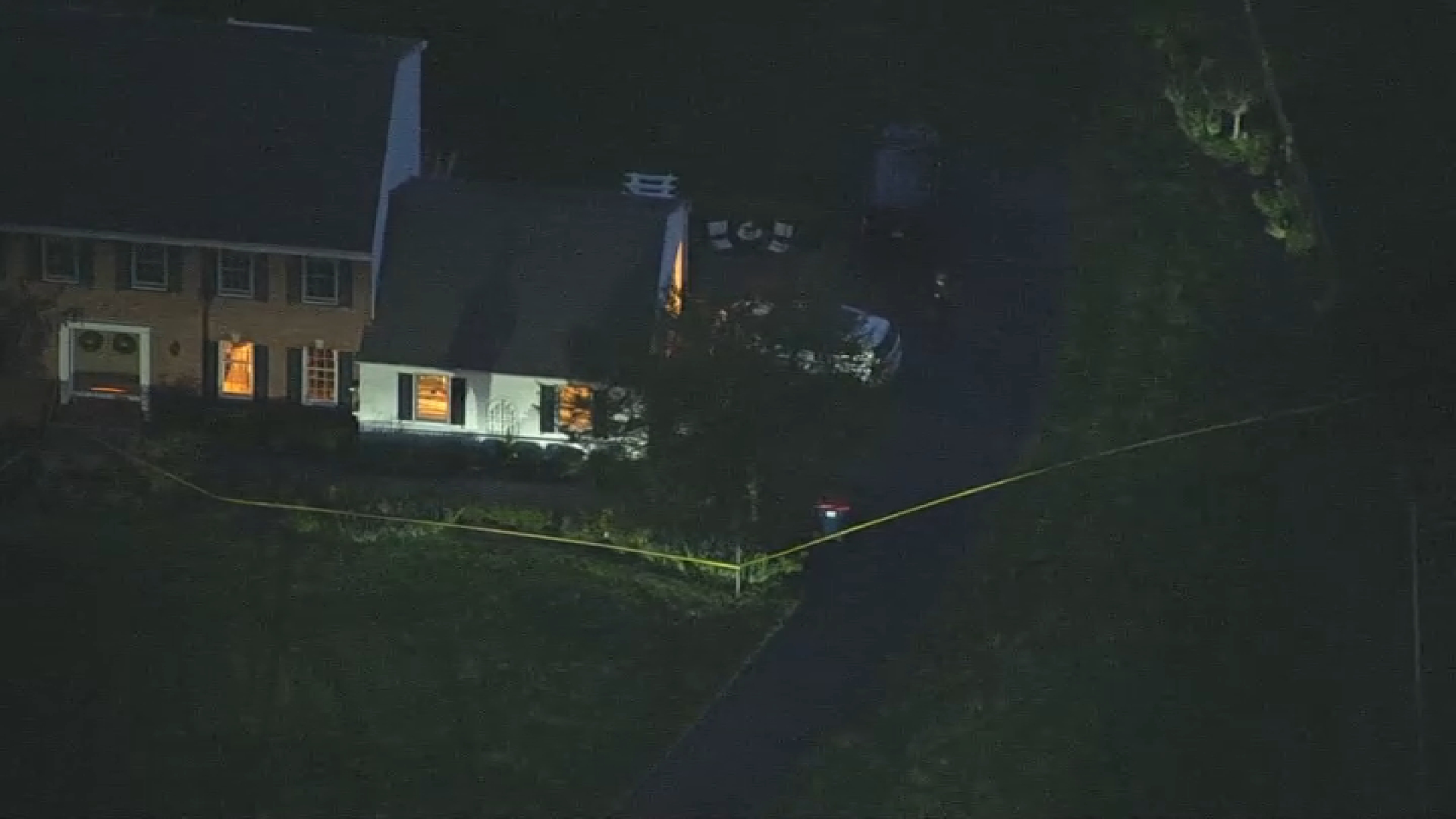It's been spotted on license plates in Atlantic City and Collingdale, draped across a truck in a Kohl's parking lot and flying on poles outside homes in Montgomery and Chester counties.
You can see it on the side of a building off Aramingo Avenue in Port Richmond, hanging inside an apartment near Capitolo Playground in South Philly and painted on the "Dukes of Hazzard" replica Dodge Charger cruising around Delaware County.
In Camden, it's practically the official emblem for country-rock tailgate parties outside the Susquehanna Bank Center, where a concertgoer was charged this summer with bias intimidation for allegedly waving it at city residents and spewing racial slurs.
Even a Philly cop was photographed last year wearing it under his bike helmet while on duty.
Nearly 150 years after the Civil War ended, the Confederate battle flag — a complicated and incendiary symbol of rebellion, slavery, Southern pride and white supremacy — is seemingly becoming a more frequent sight north of the Mason-Dixon Line.
"I remember taking a second look and going, 'Really?' It was shocking," said Bryl Villanueva, 35, of Lafayette Hill, who recently saw a rebel flag flying in Conshohocken while on the way to a friend's house. "Maybe they're from Alabama."
Local
Breaking news and the stories that matter to your neighborhood.
What's behind the popularity of the flag in the North? Is it the dark underbelly of the rapidly growing country-music scene? Disapproval of the president? An innocent revival of the rebel spirit among Yankees who don't know — or care — what it means to the rest of society? Or something more sinister?
"Me, I fly the stars and stripes," Dereck Banks, a self-described history buff from Clifton Heights, Delaware County, told the Philadelphia Daily News.
But Banks, 55, who is black, can't miss the Dixie flag plastered across the back window of his neighbor's pickup truck parked at the curb. It's also on the front license plate, with the word "Daddy."
"It offends a lot of people. White folks, too," Banks said. "Slavery is over. This is the new millennium. The South lost. The states are united."
Public schools have long been desegregated, too, but some Philadelphia-area residents are flying the same flag that the Ku Klux Klan and others adopted during the civil-rights movement to oppose desegregation.
In June, when country-rock star Toby Keith played the Susquehanna Bank Center, police said Darren Walp, 33, of Ridley Park, climbed a fence into a housing complex, waving the flag and shouting racial slurs. The flags were out again the next weekend at a concert headlined by Brad Paisley, and tailgaters were outraged because security was forcing them to be taken down.
Last month, Walp was arrested a second time in Camden while on his way to a Blake Shelton concert. Cops say he hopped out of his pickup truck to get a beer from the back, ranting at a black driver and challenging him to a fight.
"We never want to see this individual in the city of Camden again," Camden County Police Chief J. Scott Thomson said at the time, in a news release.
Some defenders of the Confederate flag say it is not inherently racist and should be flown to honor Confederate soldiers. Others, like Doug Copeland, a medical tech who said he was born in Chattanooga, Tenn., use it to show their fondness for the South.
"I'm not prejudiced at all. My granddaughter is half-black," said Copeland, who flies a flag from his home on busy Route 724 near Phoenixville. "I just love the South. If I could live there, I would."
But Copeland also knows that some people find it offensive. He thinks they are the ones who removed his prior flags.
"That's why I think they stole it. They came to the bus stop and stole the flag. It's my third one," he said. "It's bolted in now, but the one time they snapped it right out of the bolt."
Copeland, however, doesn't seem overly concerned with political correctness, as evidenced by the sign on his door that reads, in part: "Unless you are blind or cannot read this sign, you can bet your ass I am going to stomp the s--- out of you if you bother me!"
Some groups, including the Virginia Flaggers — which has leased land along Interstate 95 south of Richmond and plans to erect a 12-by-15-foot Confederate flag on a 50-foot pole Saturday — have denounced the KKK and others that have used the flag for their own purposes.
"If somebody broke into your house and robbed you, and they were wearing New York Giants attire, you wouldn't assume that there was something evil in the Giants association," said Gene Hogan, chief of heritage operations for the Sons of Confederate Veterans. "You would say, 'No, that was an evil person that co-opted those garments.' Same way with the battle flag."
Hogan said the SCV, an organization for male descendants of Confederate soldiers, encourages people to display the flag in remembrance of those who fought in the Civil War — or the Second American Revolution, as the group refers to the war on its website.
"It stands for brave men who defended their homeland against an unconstitutional invasion and represents all the good things in America," Hogan said.
That's not how Drexel University sociologist Mary Ebeling sees it. The Falls Church, Va., native questioned whether it's possible to express regional pride, oppose the expansion of the federal government or just yearn for simpler times, while ignoring the flag's role as a hate symbol in America's history.
"The re-emergence of it is concerning," Ebeling said. "It's a brand, a symbol of oppression, violence, and, I would argue, white supremacy."
Even though she is white, Ebeling said, she "took it as a threat" when someone taped a small flag to a lamppost in her predominantly black neighborhood in West Philly a couple of years ago.
"Once these kinds of meanings are attached to those symbols, the meanings endure," she said.
Mark Potok, senior fellow at the Southern Poverty Law Center in Montgomery, Ala., agreed. People may have conflicting interpretations of what the flag means now, he said, but that doesn't change how it was used in the past, including during the civil-rights movement.
"The flags were raised in a patently racist show of standing by white supremacy and full-out resistance to desegregation," Potok said.
Fifty years later, Potok said, "I think it's a little like the O.J. Simpson trial. People have very different reactions to it based on their life experience."
A flag shop in Broomall
Charlie Hauber, owner of the Flag & Sign Place in Broomall, Delaware County, said he keeps Confederate flags in stock because of their historical relevance. Other flag stores refuse to sell them.
"I've had truckers come to me and say, 'I can't buy these things anywhere,' " Hauber said. "Places just stopped selling them."
Hauber said that he doesn't support slavery, but that the Civil War was also about states' rights.
"I'm inclined to agree with the states. They have certain rights that should be separate from the federal government," he said. "But I'm not going to fly a Confederate flag."
People might feel intimidated or threatened by the flag — whether that's the intention or not — but flying it is protected by the First Amendment.
"In some circumstances, it clearly is insensitive and offensive, but not all the time," said Mary Catherine Roper, senior staff attorney at the American Civil Liberties Union of Pennsylvania. "It doesn't matter whether it's offensive. It doesn't matter whether it is racial. It doesn't matter whether it's a white-power statement. You could not outlaw flying the Confederate flag."
Last year, the ACLU of Delaware assisted a state Department of Transportation worker who was disciplined for displaying a Confederate-flag license plate on his car parked at work. The department later agreed with the ACLU that he was entitled to display the plate.
Banks, the Clifton Heights man whose neighbor has Confederate flags on his truck, said the neighbor is a friend, so he doesn't take offense in that instance.
"I think it's stupid, but being in America, you're free to do whatever you like," he said. "People are people. If you turned us inside out, you couldn't tell what color we are."
The owner of the truck wouldn't talk with the Daily News, but his next-door neighbor, Michael Blythe, said the flags are not intended as a hate symbol.
"It's not racist at all," said Blythe, 35, a carpenter. "Everybody loves each other on this block."
Jim Matusko, 66, an accountant who flies an American flag year-round at his home around the corner, said self-styled rebels need to grow up and find a new symbol.
"They got their asses whooped 148 years ago," he said. "Let it go, already, for God's sake."
Matusko said the apparent popularity of the flag today could be a symptom of a highly polarized country under a black, liberal president. But he doesn't think its connection to slavery can be severed, either.
"With the issue of slavery, waving a flag in someone's face is almost like trying to pick a fight. I don't think this country needs that kind of s---," he said. "I don't like the guy in the White House, either, but the South isn't going to rise again."



